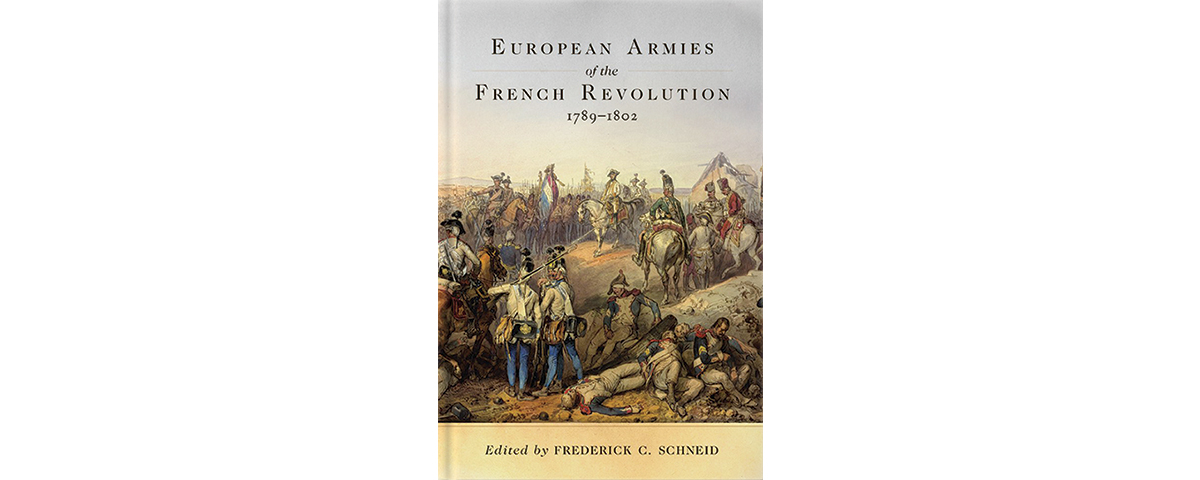European Armies of the French Revolution, 1789–1802, edited by Frederick C. Schneid, University of Oklahoma Press, Norman, 2015, $34.95
While authors have written countless volumes about the French revolutionary army and its role in preserving republican ideals until that Bonaparte fellow came along, almost nothing has been written in English about the armies of its rivals Austria, Prussia, Great Britain, Russia, Spain, the Ottoman empire and the various German and Italian states in the critical years of 1789–1802. In Vol. 50 of the University of Oklahoma Press’ Campaigns and Commanders series, Schneid, a history professor at North Carolina’s High Point University, culls insights from nine leading scholars to analyze the structures and organizations of all the armies that fought during that period.
The modern French army was Jacobite by origin. It was the Committee of Public Safety and the National Convention, dominated by Maximilien Robespierre, that concluded compulsory service must be absolute if the revolution were to be rescued from its enemies. In August 1793 the Convention decreed a levée en masse—the first national draft in European history. Thus the volunteers of the previous year were joined by the conscripts of 1793 and 1794.
The participating essayists generally agree that the changing face of warfare in the decade following the 1789 uprising did not spark a “revolution in military affairs”; that came later during the Napoléonic wars. Among some of their other interesting conclusions is that it was impossible for the Austrian army to undergo reforms similar to the French army’s, as to do so would have negated the monarchy itself. Another is that the czar’s army was quite capable of holding its own against revolutionary France; Russia’s real weakness lay in its financial structure and its social and economic conditions.
After the Sept. 20, 1792, Battle of Valmy writer and statesman Johann Wolfang von Goethe told Duke Karl August of Saxe-Weimar and his Prusso-German staff, “From this place and from this day forth commences a new era in the world’s history, and you can all say that you were present at its birth.” Readers of this excellent book are likely to agree.
—Thomas Zacharis





